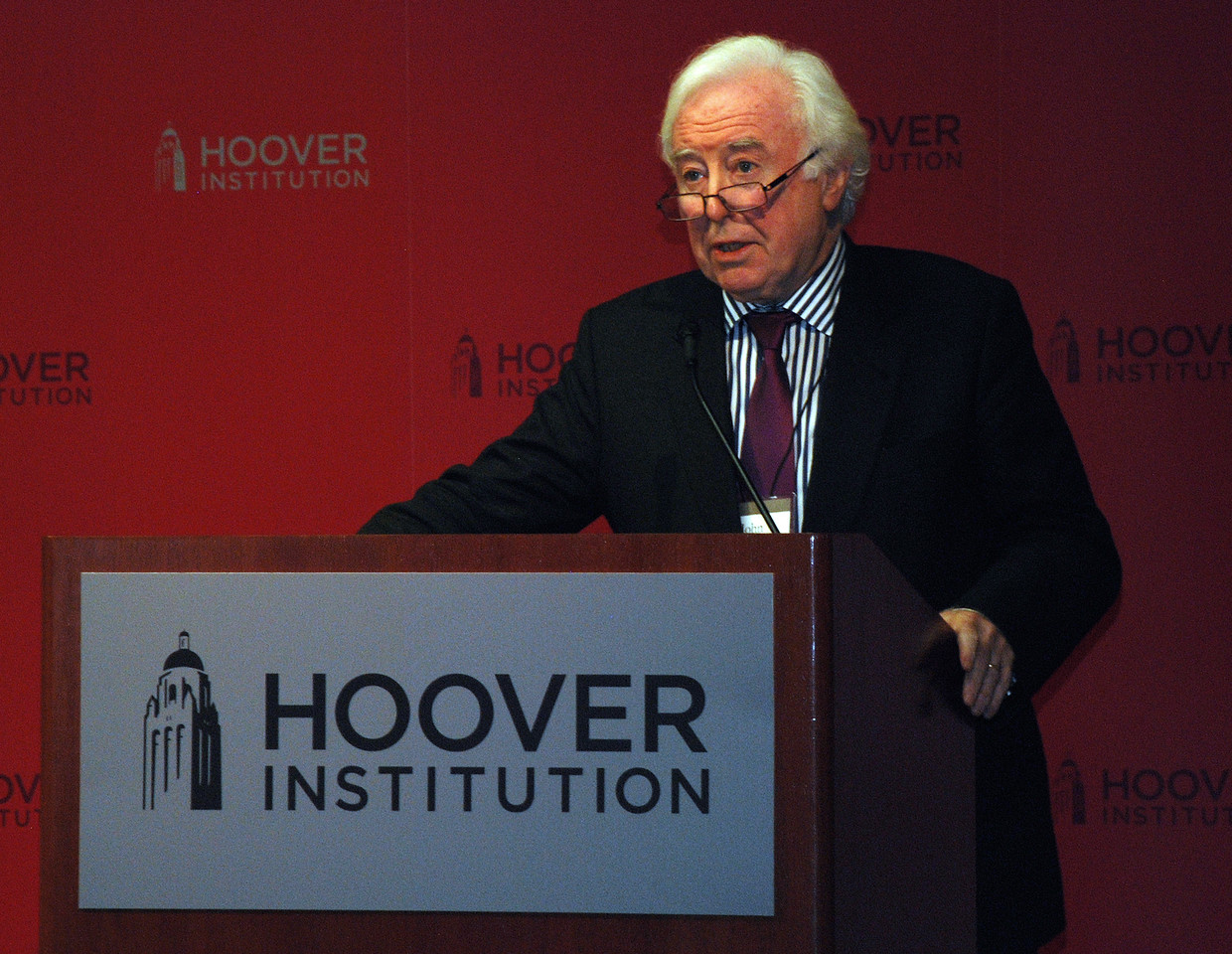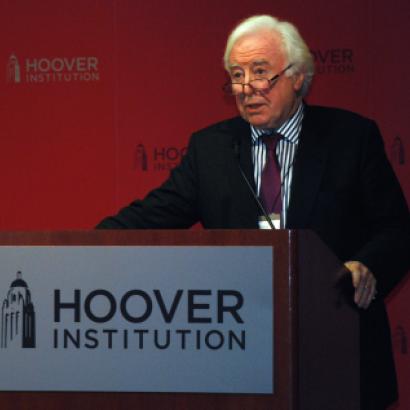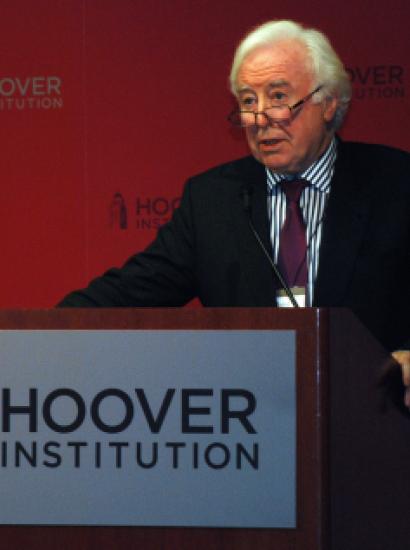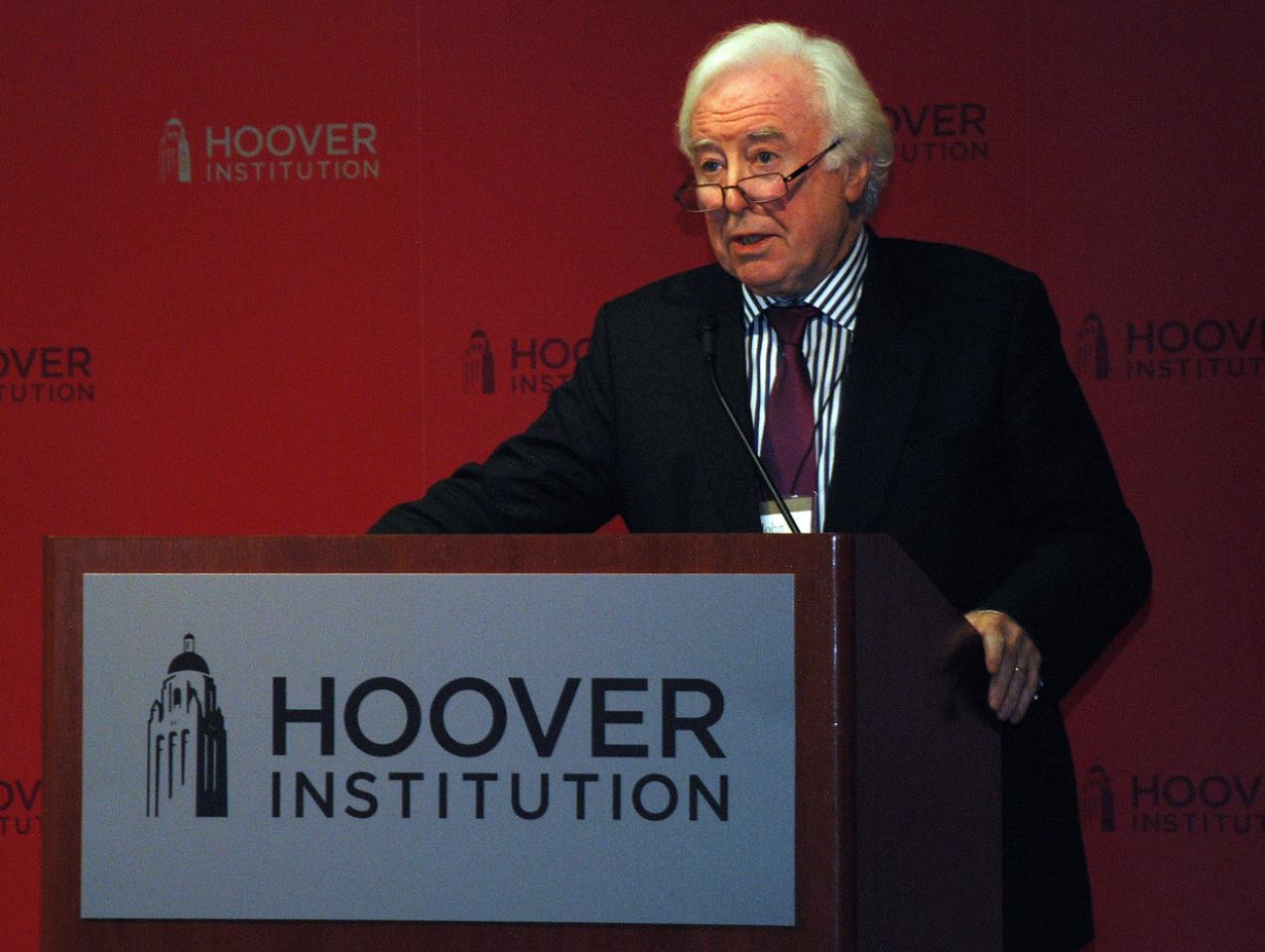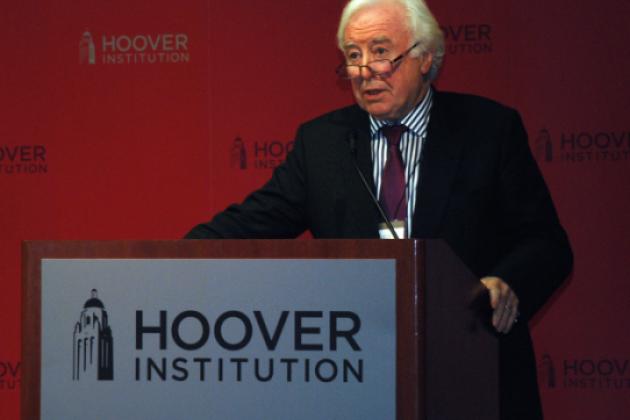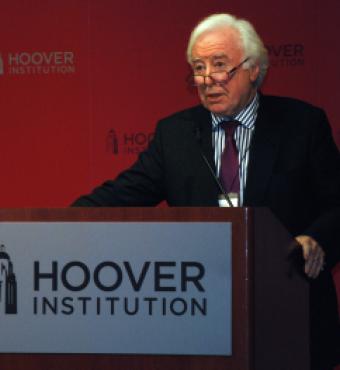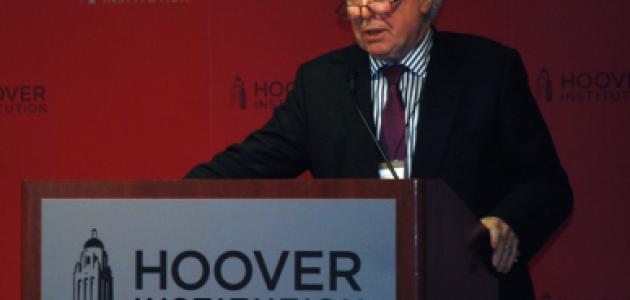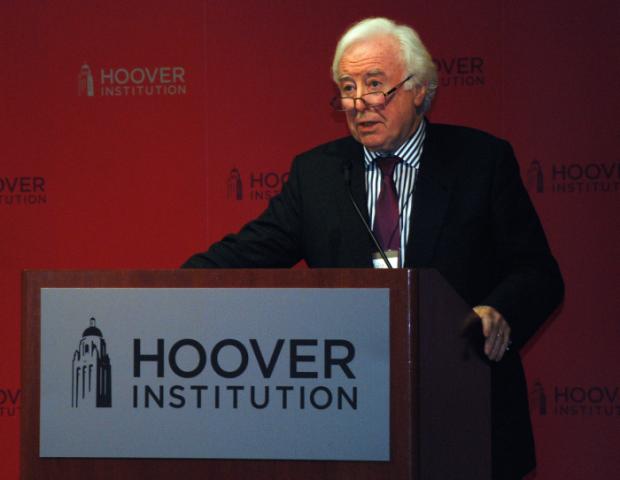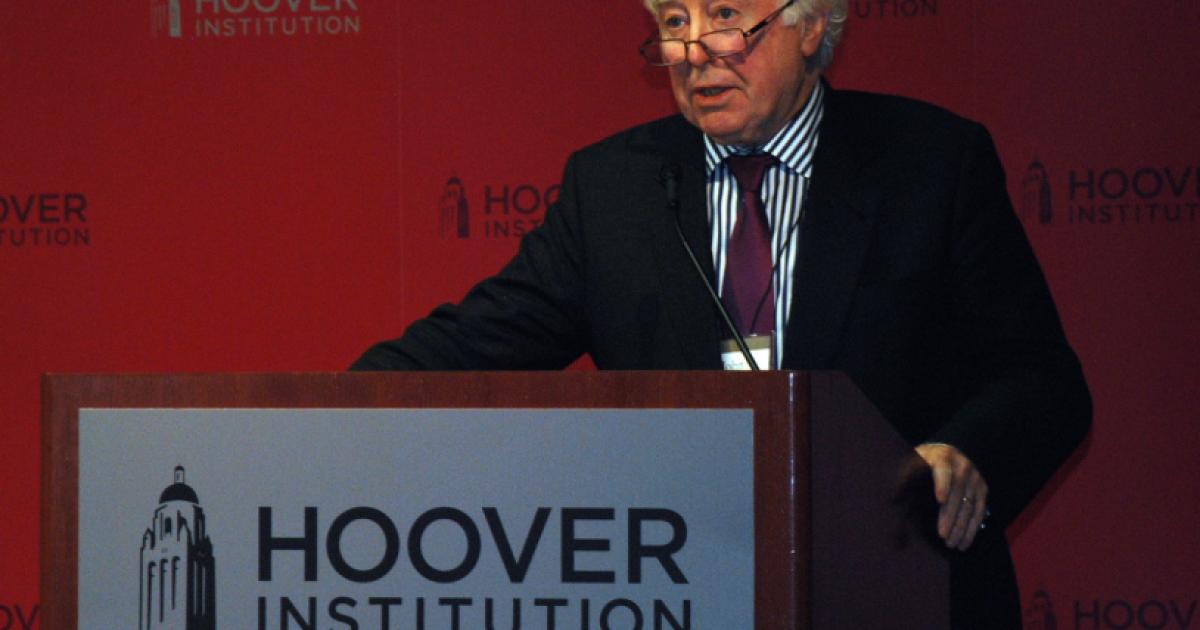- History
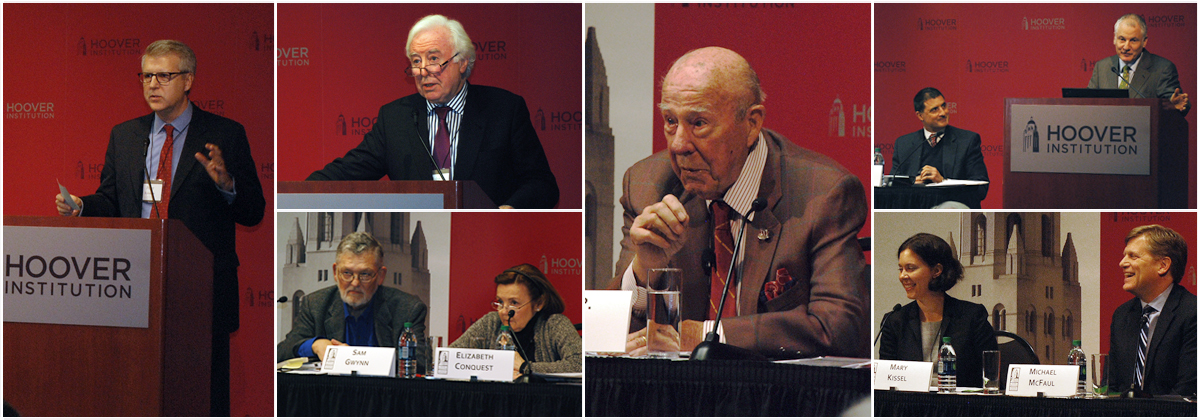
On Monday, January 25th, Hoover Institution fellows and affiliates joined to celebrate the life and career of Robert Conquest, a preeminent Cold War scholar who became an expert on the abuses of the Soviet regime under Stalin. Conquest, who died on August 3, 2015, spent 28 years as a Senior Research Fellow at the Hoover Institution, and was curator of the Russian and Commonwealth of Independent States Collection of Hoover Library & Archives between 1981 and 2007. A collection of his papers is held at Hoover Library & Archives.
Monday’s event, entitled “A Tribute to Robert Conquest,” brought together scholars and former statesmen in a series of conference sessions that explored Conquest’s enduring contributions across a broad range of policy realms, including Sovietology and the administrations of British prime minister Margaret Thatcher and US president Ronald Reagan, and modern literature and poetics. Princeton historian Stephen Kotkin discussed Conquest’s revelatory work on life behind the Iron Curtain, while poet Sam Gwynn presented a talk Conquest’s literary achievements and his relationships with well-known writers such as Kingsley Amis. Journalist John O’Sullivan investigated Conquest’s influence on Margaret Thatcher’s administration and former Secretary of State George P. Shultz illuminated Conquest’s equally far-reaching influence on Ronald Reagan’s administration. The final talks of the day included former United States Ambassador to Russia Michael McFaul in discussion with Mary Kissel of the Wall Street Journal sharing his thoughts on current US-Russian relations, and pre-dinner remarks by former Secretary of State Condoleezza Rice.
To coincide with the event, Hoover Library & Archives provided an exhibit of items from Robert Conquest’s archive, as well as items graciously loaned by Robert Conquest's widow, Elizabeth Conquest. The display included including rare photographs, book manuscripts and poem fragments, first editions of major works, a collection of medals, and letters from Margaret Thatcher and Alexander Solzhenitsyn. The archival material captured the special moments, relationships, and awards of Conquest’s long and fruitful career.
The display and remarks of the day celebrated the prolific and polymathic nature of Conquest’s achievements. After receiving a doctorate in Soviet history at Oxford, Conquest served in the British infantry during World War II. In the immediate postwar period, he saw the Soviet domination of Eastern Europe, an experience that left him decidedly anti-communist. Conquest joined the Foreign Office's Information Research Department, a unit created to counter Soviet propaganda in the West. During his subsequent career in the diplomatic service and as a historian, he became the author of 21 books on Soviet history, politics and international affairs. In 1968, Conquest published the classic The Great Terror, the first comprehensive research of the Stalinist-era purges that took place in the Soviet Union between 1934 and 1939. The book remains one of the most influential studies of Soviet history and has been translated into more than 20 languages. Stephen Kotkin has claimed Conquest to be “the most influential Sovietologist ever,” while George P. Shultz has asserted that Conquest “set the gold standard for careful research, total integrity, and clarity of expression about the real Soviet Union. He taught us all and he will live on in that spirit.” During an era when Western intellectuals were conspicuously uncritical of the Stalinist regime, Conquest led the way in shedding light on the reality behind the Iron Curtain. His characterization of Soviet policy in the 1930s proved accurate. In 2005, Conquest received the Presidential Medal of Freedom, the nation's highest civil award given by the U.S. president "to any person who has made an especially meritorious contribution to the security or national interests of the United States, or world peace, or cultural or other significant public or private endeavors."
Conquest was also a highly successful poet and novelist; he authored seven volumes of poetry and one of literary criticism, a science fiction novel and another novel authored jointly with Kingsley Amis. In 1945, he was awarded the PEN Brazil Prize for his war poem, For the Death of a Poet, and six years later he received a Festival of Britain verse prize.
In parallel to the event, Hoover’s Uncommon Knowledge team created A Tribute to Robert Conquest, a video of reflections from Conquest’s closet friends, academic colleagues, and admirers. The participants share stories about Conquest’s influence on their thinking, his partnership with his wife, Liddie, and their favorite moments with the renowned scholar. They also recount one of Conquest’s most memorable poems, a limerick about Soviet atrocities, illustrating the extraordinary combination of rigor and wit with which he approached his work.
We invite you to learn more Robert Conquest’s life and legacy by exploring the following resources
- Hoover’s online biography of Conquest featuring links to his books and other publications
- Audio recordings of selected talks delivered at the “A Tribute to Robert Conquest” event:
- Event panelist Mary Kissel’s reflections on Conquest and the event on the Wall Street Journal’s “Foreign Edition” podcast (24:00 mark)
- Hoover Honors Cold War Scholar Robert Conquest
- Remembering Robert Conquest, a collection by Conquest’s Hoover colleagues, including a statement by former director John Raisian







